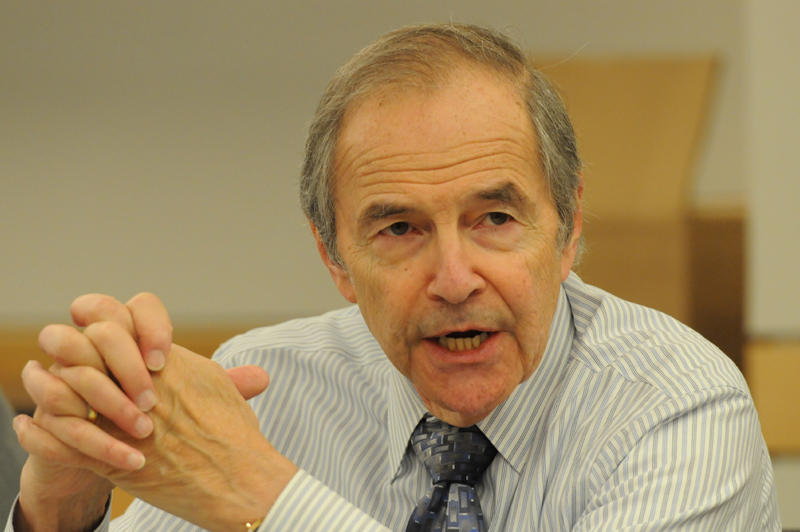U.S. Envoy to Sudan, S. Sudan Addresses USIP's Academy
Ambassador Princeton Lyman, the U.S. special envoy to Sudan and South Sudan, on April 23 spoke to a group of students at USIP's Academy for International Conflict Management and Peacebuilding. The students were attending the Academy's Two Sudan course, running this spring from April 23-April 26

Ambassador Princeton Lyman, the U.S. special envoy to Sudan and South Sudan, on April 23 spoke to a group of students at USIP's Academy for International Conflict Management and Peacebuilding. The students were attending the Academy's Two Sudan course, running this spring from April 23-April 26.
The four-day course, taught by Matthew Levinger and Linda Bishai, provides students a better understanding of the complex environment and operating conditions of the two Sudans and enables practitioners and analysts to work more effectively in the region. Students in the course apply conflict analysis techniques and frameworks to case studies drawn from live situations in the two Sudans.
Lyman's discussion came at a time of increased hostilities between Sudan and South Sudan. The ambassador had just returned from a trip to Juba, the capital of South Sudan, and Khartoum, Sudan.
Since 2005, USIP experts have focused on helping to build peace and stability in Sudan, working through partnerships with the U.S. Department of State, nongovernmental organizations in Sudan, and key stakeholders.
Lyman was a senior fellow at USIP from 1999-2000 and is the author of "Partner to History: The U.S. Role in South Africa's Transition to Democracy," published by USIP Press in 2002.



